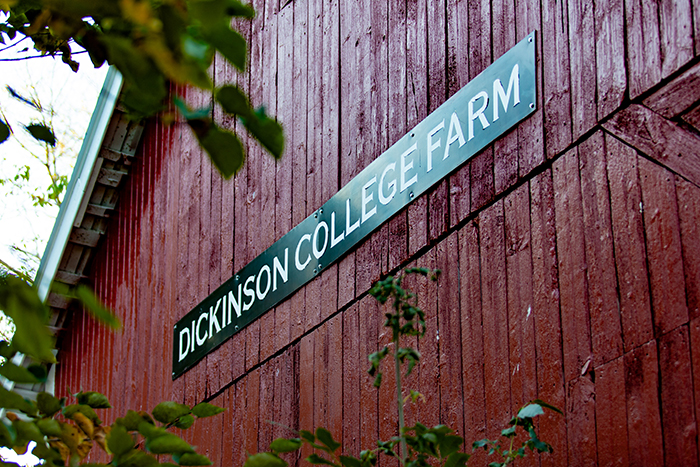Dickinson's College Farm Receives EPA Funding

Dickinson is one of 12 organizations to receive a share of $3 million in funding to support anaerobic digestion in communities
The U.S. Environmental Protection Agency (EPA) announced recently that Dickinson has been selected to receive a $300,000 grant to advance initiatives in anaerobic digestion (AD), a strategy included in the EPA’s food recovery hierarchy that is preferable to landfilling/incineration because it reclaims valuable resources. Keeping food waste from landfills, such as by transforming it into fuel or fertilizer, can save money and reduce environmental impacts.
Dickinson is one of only 12 recipients expected to receive a share of approximately $3 million in funding to help reduce food loss and waste and to divert food waste from landfills by expanding anaerobic digester capacity in the United States. The project types selected for funding include feasibility studies, demonstration projects, as well as technical assistance and training.
Ken Shultes, associate vice president for sustainability and facilities planning, says the grant will support the College Farm’s bio-digestor project, which converts cow manure and food waste into electricity. “This innovative project has so many important outcomes, including carbon reduction, improved water quality, landfill waste diversion, community engagement, cost savings and educational value. After three years of research, planning and design, it’s great to see this sustainability project coming together," said Shultes.
This anaerobic digestion funding opportunity is a part of EPA’s efforts and contributions to the Winning on Reducing Food Waste Initiative, a partnership among EPA, the U.S. Department of Agriculture, and Food and Drug Administration, to reduce food loss and waste through individual and combined federal action. Anaerobic digestion is a process where microorganisms break down organic materials, such as food scraps, manure and sewage sludge, all in the absence of oxygen. Anaerobic digestion produces biogas, which can be captured and used for energy production, and “digestate,” a nutrient-rich product, such as a fertilizer.
“Finding solutions to better curb food waste continues to be a top priority for the Trump administration,” said EPA Administrator Andrew Wheeler. “This year’s round of innovative community projects is focusing on ways to reduce food waste at the local and state levels and divert it from landfills.”
TAKE THE NEXT STEPS
Published October 5, 2020